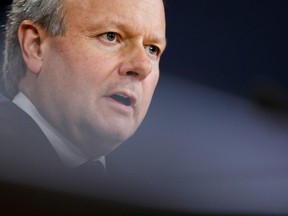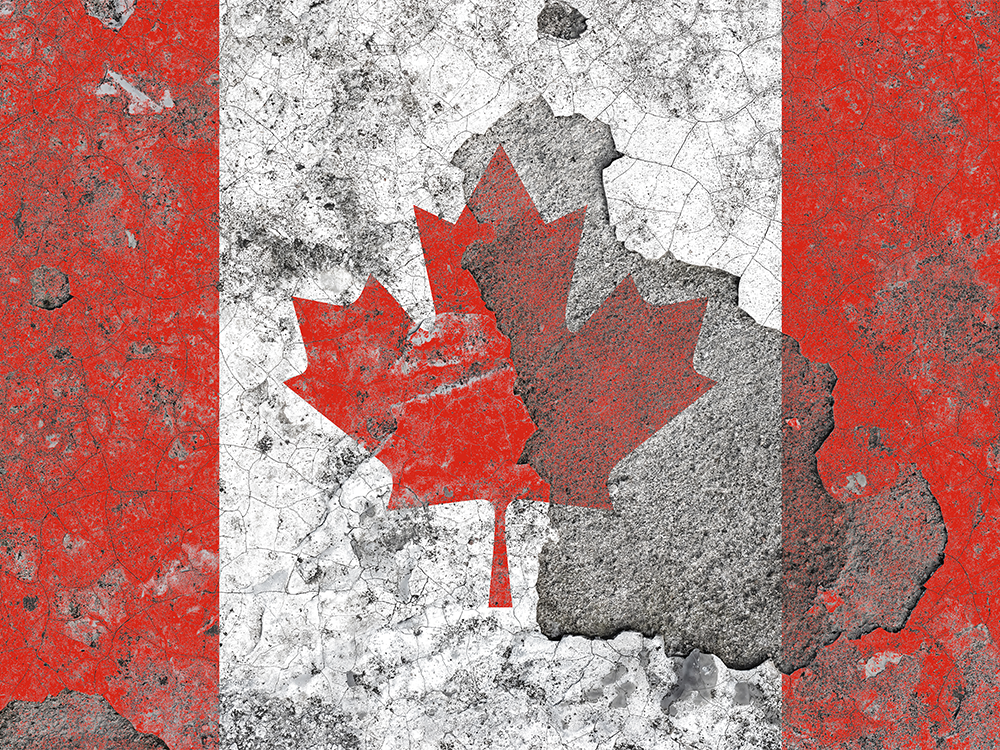Stephen Poloz’s book calls on business to do what politicians won’t: Save the economy

Five ‘tectonic forces’ are about to reshape the economy and society, predicts former head of the Bank of Canada

Article content
Stephen Poloz, known for his love of metaphors during his term as governor of the Bank of Canada between 2013 and 2020, is back with some new ones in his book, The Next Age of Uncertainty, set for release on Feb. 22.
Advertisement
Story continues below
This advertisement has not loaded yet, but your article continues below.
Article content
One is that technology advances like a flock of geese, with a lead goose (currently the United States) blocking the wind for everyone else. Another is that the economy is like a bobblehead doll, bouncing in unpredictable ways when disturbed, but eventually coming back to a steady state.
But perhaps we should get used to the bobblehead bobbling. “Most observers seem to think that the extraordinary demands placed on policy-makers during the pandemic have been unique, never to be repeated, except perhaps at time of war,” he wrote. “However, it is my contention that the confluence of the five tectonic forces will push policy-makers to their limits regularly in the future.”
There’s plenty in Poloz’s book that ought to keep Canada’s leaders awake at night
The five tectonic forces are another Poloz metaphor. The opening scene is his arrival in Bali, Indonesia, in October 2018 for the annual meetings of the International Monetary Fund and World Bank. A couple of weeks earlier, the northern part of the country had been smashed by a tsunami that killed more than 4,000 people.
Advertisement
Story continues below
This advertisement has not loaded yet, but your article continues below.
Article content
Poloz recalls snapping out of his jet lag long enough to pay attention to the earthquake and tsunami protocols. He went straight to bed, but was later roused from a deep sleep by an earthquake that registered 6.4 on the Richter scale. Nothing serious came of it, but Canada’s central bank governor had trouble getting back to sleep.
There’s plenty in Poloz’s book that ought to keep Canada’s leaders awake at night. He sees five meta-trends that are about to collide in potentially violent ways that will reshape the economy and society, just like tectonic plates have been reshaping Earth for millennia. “When the world changes, economic theory must change with it,” he wrote. “Economists who fail to adapt will be wrong, and so will everyone who follows them.”
Advertisement
Story continues below
This advertisement has not loaded yet, but your article continues below.
Article content
Most economists will be aware of the forces Poloz has identified as life-changing: the aging of the population, technological revolution, growing income inequality, unprecedented levels of debt and climate change.
But Poloz, who earned a PhD in economics at Western University in London, Ont., and then joined the Bank of Canada as a staff researcher in the early 1980s, laments how infrequently his peers update their priors. He’s critical of the extent to which the thinking class has bought into “black swans,” the idea that many world-altering events are random and, therefore, unpredictable.
“When an economist declares that an economic or a financial event (such as the 2008 Global Financial Crisis) is a black swan, they are essentially absolving themselves of any responsibility for not foreseeing it,” he wrote.
Advertisement
Story continues below
This advertisement has not loaded yet, but your article continues below.
Article content
The financial crisis was foreseeable, just not with the pinpoint accuracy we’ve come to associate with good forecasters, and not at all if you were relying on models based on the uncharacteristically strong growth that occurred after the baby boom generation started joining the labour force in the 1960s. The root cause of the 2008 financial crisis, which led to the Great Recession, was one of Poloz’s forces: debt.
American households had accumulated so much of it during the housing boom that they eventually had to curb their spending in order to preserve enough income to make their mortgage payments. Economic growth slowed, and that caused the house of cards constructed by Wall Street to come tumbling down. A few saw it coming. More probably should have.
Advertisement
Story continues below
This advertisement has not loaded yet, but your article continues below.
Article content
The growing importance of ESG in the corporate world represents the failure of politics to deliver the right balance of policies
Stephen Poloz
Poloz sees more such crises unless someone gets a grip. He’s skeptical that people whose job it is to keep us out of trouble are up to the task. He thinks inequality has so badly polarized society that the sort of compromise required to do big things in a democracy will be unachievable in the future.
Considering current events in Ottawa, and the site of TC Energy Corp.’s Coastal Gaslink project in British Columbia, it’s hard to argue against the former governor’s assessment of the situation.
“I believe the coming tectonic stresses will prove too much for the capacity of existing fiscal and monetary stabilization tools,” Poloz wrote. Therefore, given the “political challenges” that will impede an overhaul of existing policy, “policy-makers will not be able to absorb all of the increase in risks that the tectonic forces will deliver.”
Advertisement
Story continues below
This advertisement has not loaded yet, but your article continues below.
Article content
-

Tectonic forces are working on the economy that central banks can’t battle alone: Stephen Poloz
-

Carolyn Wilkins: Canada must build framework to make crypto as safe as our financial system
-

Labour-hungry manufacturing sector has a message for young people: think sci-fi, not smokestacks
Still, Poloz is somewhat optimistic. He thinks companies and their leaders will fill the void left by politicians, especially when it comes to dealing with inequality and climate change. Those who believe corporations should only worry about maximizing profits will hate that conclusion. Anticipating those critiques, he advised those who “sniff” at executives and investors who insist that environmental, social and corporate governance (ESG) concerns receive as much attention as profits to catch up with the times.
“The growing importance of ESG in the corporate world represents the failure of politics to deliver the right balance of policies,” he wrote. “Investing in ESG is a form of risk management.”
It’s an intelligent way to recast the tired debate over “stakeholder” capitalism. Poloz has done the same with a number of other assumptions that block progress on important issues such as housing, taxes and a universal basic income. Let’s hope The Next Age of Uncertainty becomes a bestseller.
• Email: [email protected] | Twitter: CarmichaelKevin
Advertisement
Story continues below
This advertisement has not loaded yet, but your article continues below.








